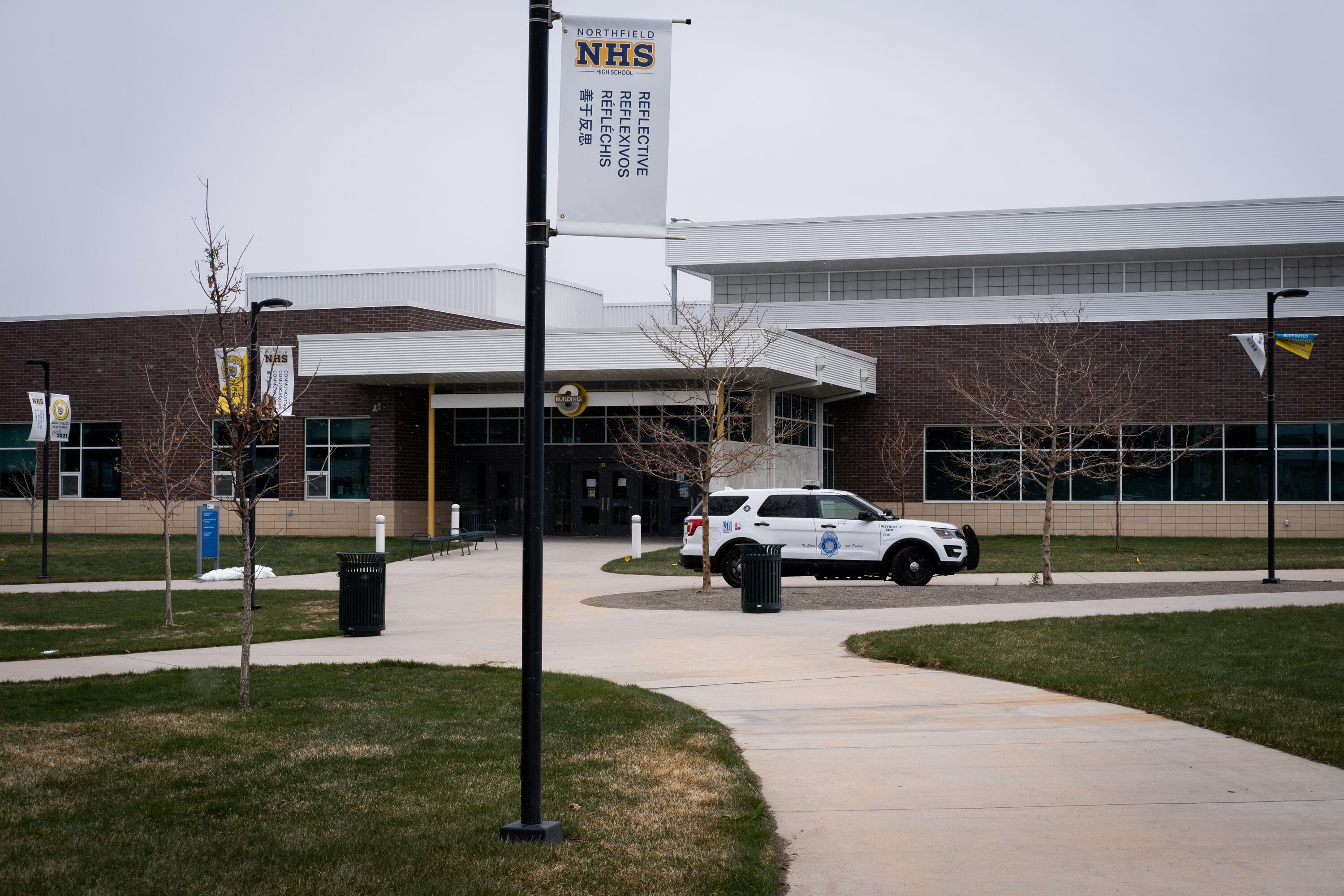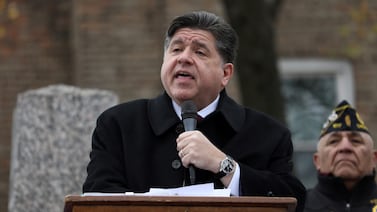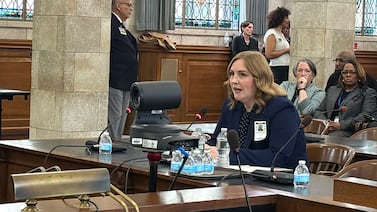A message in red letters tops Denver Public Schools’ new guide for school staff about when they should call the police.
“You make a difference in breaking historical patterns of inequity!” it says. “Disrupt bias, fight disproportionality, and apply the discipline matrix in anti-racist and trauma-informed manner.”
The new guide, rolled out this fall, places limits on when principals and other school staff can call the police. Whereas the previous guide allowed them to call the police if students brought marijuana to school or damaged school property, for example, the new guide urges them to handle those situations without involving law enforcement.
“We’re trying to remind people that every decision you make makes a difference in affecting the overall school-to-prison pipeline and which students are disciplined,” said Michelle Berge, general counsel for Denver Public Schools.
District data implies students’ contacts with police are happening less often. From August through November, there were 30 instances in which a student was referred to law enforcement, according to data provided to Chalkbeat by district officials. That’s down a dramatic 85% from the fall of 2019, before the pandemic, when there were 206 law enforcement referrals.
This district’s new discipline matrix comes partly in response to directives from the school board, which voted last year to remove police from schools. The board also ordered that students should no longer be ticketed, arrested, or referred to law enforcement at school unless there are no other alternatives for addressing “imminent threats of serious harm.”
Data shows Black students in Denver were disproportionately referred to law enforcement. Earlier this year, Chalkbeat told the story of an 11-year-old named Kal-El who’d had more than 30 interactions with armed officers at school in Denver and another local school district.
Board members said they hoped the reforms would erase those racial disparities. The board reiterated its mandate last month, when it passed another policy directing district administrators to take “all reasonable measures to decrease referrals to law enforcement.”
But longtime advocates for discipline reform question if the district is serious about making changes. After removing police officers from schools, the district increased its own armed patrol unit and got authorization from the city to allow those officers to issue tickets to students for municipal code violations like marijuana possession and fighting.
“The changes are not what we want,” said Tzigane Martin, communications coordinator for advocacy organization Movimiento Poder, formerly known as Padres & Jóvenes Unidos.
Jim Freeman, director of the Social Movement Support Lab at the University of Denver, who has worked for years with Movimiento Poder, called the revisions to the discipline matrix “marginal improvements.” But he said they fail to address what Movimiento Poder has long been advocating for: ending the criminalization of students in school.
“It’s been a real failure on the part of the district to address that criminalization at its root,” Freeman said. “Instead, they’re coming up with these adjustments on the margins.”
Principals and other school staff responsible for discipline were offered training on the new discipline matrix this fall, Berge said. Chalkbeat contacted several high school principals to ask their opinion of the new matrix, but one said he was still reviewing it, another said he was too busy for an interview, and a third said she wasn’t able to attend the district’s training.
The Denver principals union also declined to comment, saying principals had varying views. Some Denver principals had opposed the removal of police officers from schools.
District officials have defended their actions despite the pushback. Earlier this fall, Denver Public Schools Chief of Safety Mike Eaton said allowing the district’s 25 armed mobile patrol officers, who are not sworn police officers, to issue tickets allows them to use more discretion than police would and ultimately “drastically decrease ticketing for our students.”
The new discipline matrix also gives more authority to the district’s department of safety. For example, whereas the previous matrix directed school staff to call law enforcement if a student is suspected of selling drugs, the new matrix says to call the district safety department, “which will determine whether or not law enforcement needs to be contacted.”
School staff is still required to call law enforcement in certain serious situations, such as if a student brings a gun to school, seriously injures someone in a fight, or commits sexual assault.
And serious incidents appeared to be on the rise early this fall. In a presentation to the school board in late September, a month after school started, Eaton said district officials had already confiscated four loaded guns and multiple knives from students at school. Marijuana possession was up 39% from fall 2019, before the pandemic, and fights were up 21%, he said.
However, Eaton said that no students were ticketed for marijuana or fighting that month, in line with the district’s promise to use discretion. Families of students who perceive their child was the victim of a fight can still choose to call the police and pursue charges against the alleged aggressor, but Eaton said the district was encouraging them not to.
“We can come in, work with the parent, work with the school … and frankly say, ‘We’re not going to write a ticket. We’re going to go through the discipline process. We’re not criminalizing kids for this,’” Eaton said in September. “And we’ve done that this fall.”





